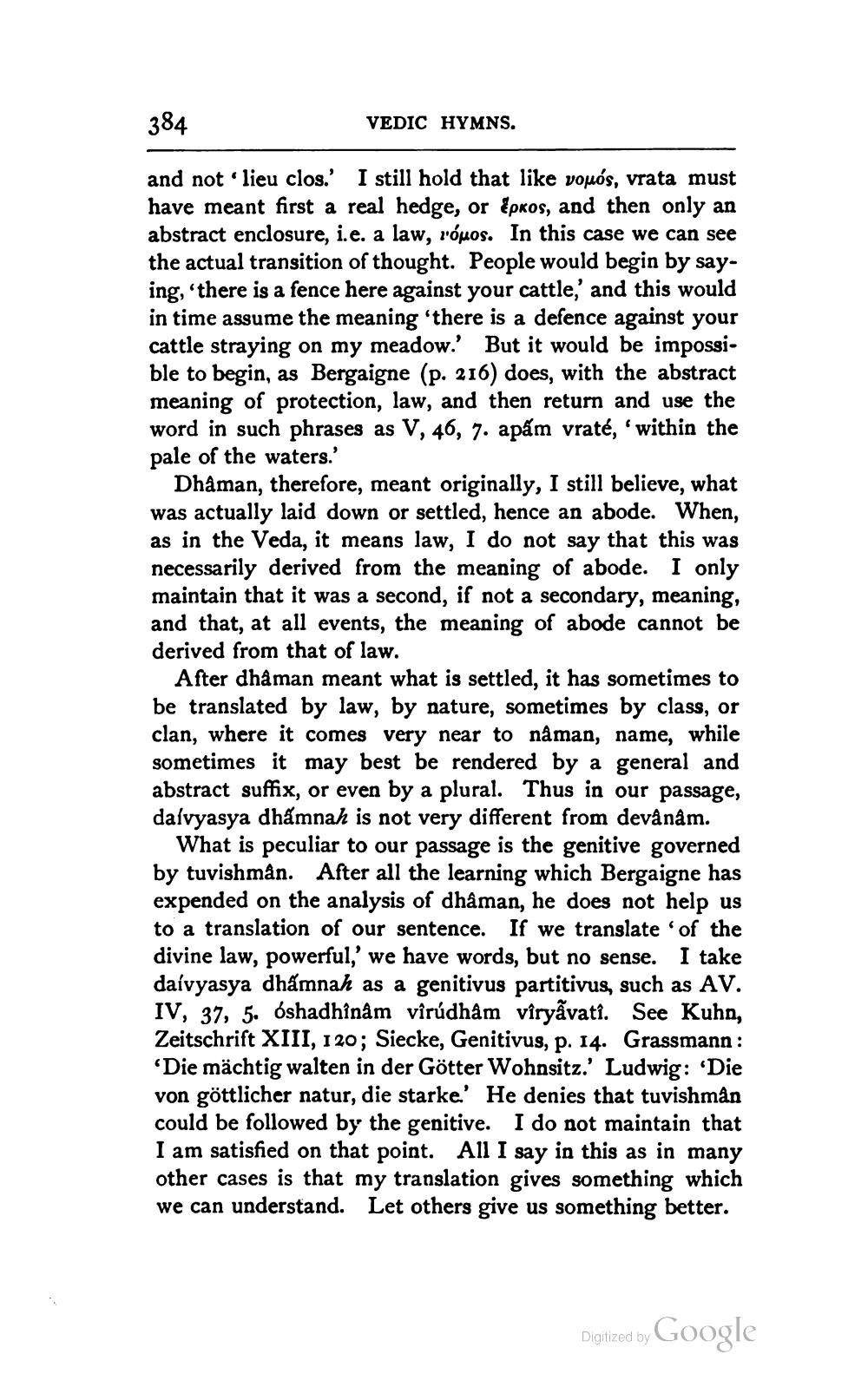________________
384
VEDIC HYMNS.
and not • lieu clos.' I still hold that like vouós, vrata must have meant first a real hedge, or {pkos, and then only an abstract enclosure, i.e. a law, róuos. In this case we can see the actual transition of thought. People would begin by saying, 'there is a fence here against your cattle, and this would in time assume the meaning 'there is a defence against your cattle straying on my meadow.' But it would be impossible to begin, as Bergaigne (p. 216) does, with the abstract meaning of protection, law, and then return and use the word in such phrases as V, 46, 7. apấm vraté,'within the pale of the waters.'
Dhaman, therefore, meant originally, I still believe, what was actually laid down or settled, hence an abode. When, as in the Veda, it means law, I do not say that this was necessarily derived from the meaning of abode. I only maintain that it was a second, if not a secondary, meaning, and that, at all events, the meaning of abode cannot be derived from that of law.
After dhaman meant what is settled, it has sometimes to be translated by law, by nature, sometimes by class, or clan, where it comes very near to naman, name, while sometimes it may best be rendered by a general and abstract suffix, or even by a plural. Thus in our passage, daivyasya dhamnah is not very different from devânâm.
What is peculiar to our passage is the genitive governed by tuvishmån. After all the learning which Bergaigne has expended on the analysis of dhaman, he does not help us to a translation of our sentence. If we translate of the divine law, powerful,' we have words, but no sense. I take daívyasya dhấmnah as a genitivus partitivus, such as AV. IV, 37, 5. Óshadhinam virúdhâm viryãvati. See Kuhn, Zeitschrift XIII, 120; Siecke, Genitivus, p. 14. Grassmann: ‘Die mächtig walten in der Götter Wohnsitz.' Ludwig: Die von göttlicher natur, die starke.' He denies that tuvishman could be followed by the genitive. I do not maintain that I am satisfied on that point. All I say in this as in many other cases is that my translation gives something which we can understand. Let others give us something better.
Digized by Google




